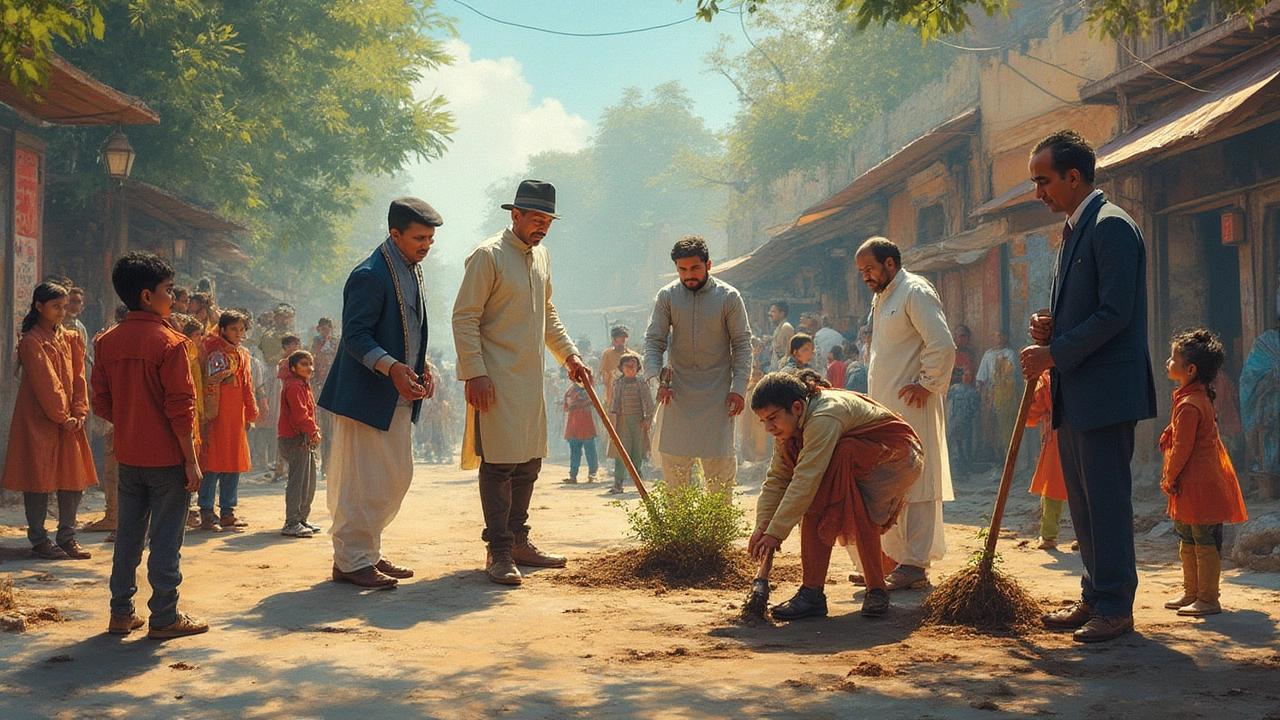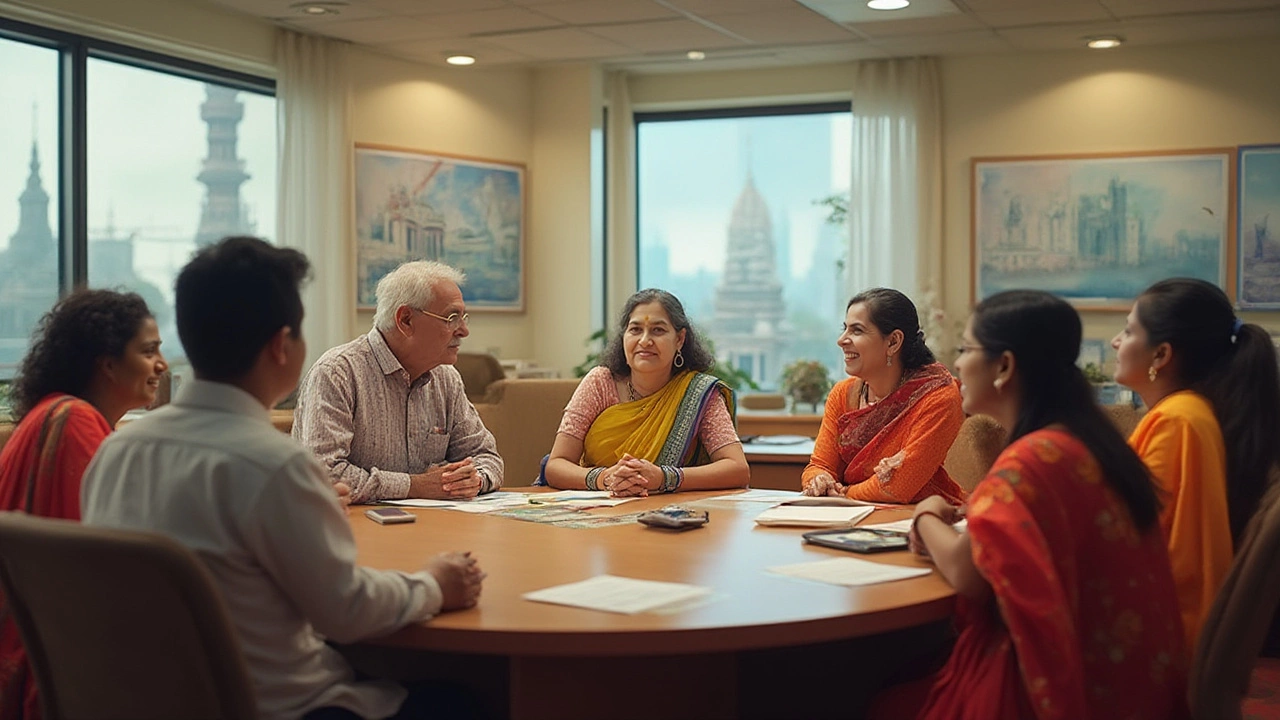People who think government is all red tape and endless paperwork haven’t peeked behind the curtain. Volunteering for your local government is more accessible—and more impactful—than most think. In fact, city halls across the country regularly ask for everyday folks to lend a hand, help shape policy, and tackle problems right in their neighborhoods. The catch? Most people simply don’t know how to plug in, or they think you need political experience to even get your foot in the door.
Why Local Governments Need Volunteers
Believe it or not, local governments rely on volunteers in ways that go far beyond the usual community clean-ups or election day help. Cities and counties are stretched thinner each year, facing shrinking budgets and bigger to-do lists. Volunteers bridge the gap, jumping into roles like park management, historic preservation, city board positions, or advisory committees that decide on things like public art and bike lanes. In some towns, volunteers lead tree-planting programs or even review zoning changes that affect entire neighborhoods.
Your voice carries weight when you volunteer. For example, some advisory boards have voting power on issues such as local business permits or park funding. These aren’t simple rubber stamps—some committees shape rules that stick for decades. And, here’s a surprising fact: In the United States, there were over 85,000 local governments, including towns, counties, school districts, and special districts, according to the Census Bureau’s 2022 count. That’s thousands of ways to get involved right on your doorstep.
Most local volunteer roles are part-time or project-based, so you don’t need to put your life on hold. You’ll find everything from a few hours on a Saturday morning picking up litter to a monthly two-hour seat on the parks advisory board. And cities need all kinds of expertise, from graphic design skills to simply knowing how to keep a meeting on track. There’s a spot for everyone, not just for those with degrees in public administration. Many cities actually want people with practical, real-world experience—parents, retirees, artists, even young adults interested in seeing how government really works.
And don’t forget—the value works both ways. Volunteering for local government can give you real skill-building opportunities, plugged-in references, and a behind-the-scenes peek at how decisions get made. In competitive fields like law, education, or urban planning, showing you’ve rolled up your sleeves for your city or township can set you apart from others with similar résumés.
Types of Local Government Volunteer Opportunities
You never know what volunteering for local government will look like until you check the listings. Roles stretch from hands-on physical work to cerebral policy advising. The classic entry-level spot? Community clean-ups, tree plantings, holiday parades, and helping out at city fairs. In a lot of cities, the parks and recreation department practically runs on volunteer hours. But look beyond the basics and you’ll see where real impact happens—committee and board service.
Here’s a sampler of what’s out there:
- Advisory Boards and Commissions: These cover housing, transportation, the environment, arts and culture, historic preservation, and more. Some have open seats just for community volunteers. Others reserve a few for subject experts, but most cities love a mix.
- Event Planning Committees: Festivals, block parties, and town celebrations all need planning. Volunteers might handle marketing, logistics, or even MC the big day.
- Parks, Gardens, and Trails Maintenance: Think trail blazing, invasive species removal, or helping create butterfly habitats—real hands-on work that shapes your community’s green spaces.
- Youth and Senior Outreach: Some cities have programs where you help plan activities for seniors, mentor kids after school, or organize sports leagues.
- Neighborhood Watch or Emergency Preparedness: These keep your street safe and get you popping over to neighbors’ houses for real teamwork in crisis planning.
- Election Assistance: Not just poll working—cities need volunteers to help register voters, educate the community about ballot measures, and staff info booths.
Certain roles are more competitive, especially advisory board seats. Some positions even come with a small stipend or reimbursement for expenses, though most are strictly volunteer-based. City and county websites usually list open roles, and some states run centralized portals where you can see nearby opportunities in one place.
If you’re after a bigger commitment, ask about appointment-based volunteer roles—which can last from a few months to several years and usually have a real say in how city departments spend money or create new policies. A lot of people who later run for elected office start here, learning the ropes on a planning commission or environmental review board.
Younger volunteers (even high schoolers) often find special programs tailored for them—a “youth council” or “junior mayor” project designed to give teens their first taste of civic life. Senior citizens also bring deep life experience to advisory roles and sometimes get preference for boards serving older adults.

How to Get Started Volunteering for Local Government
Starting out isn’t as complicated as most expect. You don’t need political connections or a top-tier résumé. The first step—visit your city, county, or township website and look for the "get involved" or "boards and commissions" link. Most of these websites have searchable databases for current openings. Some will have online application forms; others just ask for a resume and a short statement about your interests.
If there’s not much listed, don’t be discouraged. Not every department has the budget to post every opportunity online. Pick up the phone and call the city clerk’s office or the volunteer coordinator. You might find roles before they’re officially posted.
Here’s a simple plan to get started:
- Make a list of your personal interests—sports, the environment, arts, youth outreach, etc.
- Search your local government’s website for related volunteer programs or board openings.
- If something grabs your attention, look for application instructions and any deadlines.
- If you can’t find details, reach out by phone or email to the city clerk’s office or volunteer coordinator.
- Once you apply, expect a short interview (usually informal) just to see if you’re a good fit.
- Before you start, many cities require a quick background check (for safety reasons), especially if you’ll be working with kids or sensitive info.
Some people worry about time commitments. Don’t let that trip you up—lots of roles are seasonal or one-off. If you can only spare Sunday afternoons or the first Wednesday night of the month, say so during your interview. Most cities are flexible and just want folks who’ll actually show up and engage.
Keep in mind, too, that volunteering isn’t just about boosting your career prospects (though it certainly helps). Many volunteers fall in love with the process and run for office later, or simply build tight-knit friendships they couldn’t find elsewhere. Volunteering is as much about personal connection as it is about policy or “giving back.” You’ll get to work side by side with people of all backgrounds and learn how the sausage gets made—sometimes in a literal sense, if you’re helping with a local barbecue!
Tips for Making an Impact as a Volunteer
Diving in is one thing, but sticking around and making a real mark takes some smart moves. The pros—the people who get asked back, or even recruited for new roles—have a few habits in common.
- Start small if you’re uncertain. Even a single Saturday morning project can open bigger doors. Get a feel for how your city’s government works, who makes decisions, and which programs need the most help.
- Be reliable. Many committees get burned by people who show up for kudos but disappear when real work starts. Show up when you say you will—people remember.
- Share your specific skills. Maybe you know how to run a spreadsheet, lay out an email campaign, build a website, or lead a team. Don’t be shy about telling folks what you love doing—the city needs you in your sweet spot.
- Bring ideas, but stay open-minded. Every government body already has its way of doing things. If you’ve got a killer idea for a sustainability event or neighborhood safety campaign, pitch it—but listen to feedback from people with years of local experience.
- Network as you go. City staff, lifelong volunteers, school board members—these people know everyone. If you want to move up, ask questions, ask for feedback, and make a point of learning something new each meeting.
- Document your service. Take photos at events, track hours, and ask for a reference letter if you’re planning to use your experience for college or job applications. Some cities even give certificates or official letters for your portfolio.
- Stay curious and informed. Read council meeting agendas, attend public hearings even if you’re not serving, and pay attention to issues that affect your passion areas. You’ll be far more valuable and trustworthy if you can see the big picture.
One overlooked tip: keep up with local news, city newsletters, and social media. Sometimes, the best opportunities never make it to the official website but pop up in Facebook groups, Nextdoor posts, or word-of-mouth at the local library. If there’s a recurring issue (say, lack of youth programs), bring it up to a city board you volunteer with—they might let you lead a mini-project as a test run.
Some of the strongest impacts come from just sticking with a single committee through a full year. If you put time into building trust and learning the ropes, you’ll get more say on how programs run—and sometimes help attract new funding or help secure grants for bigger projects. Public service, at its core, is less about fancy speeches and more about quietly showing up. You’d be shocked how fast these roles can grow into paid jobs, campaign support gigs, or even professional consulting work on the side.

Common Questions—and Real Answers—About Volunteering Locally
Plenty of people kick around questions before they ever reach out. The most common? “Am I qualified?” Short answer: probably yes. With rare exceptions—technical boards might need an engineer or accountant—most advisory roles just want local residents who care. Your lived experience often trumps fancy credentials. City governments are actually trying to avoid boardrooms full of bureaucrats and want real, diverse voices, so don’t let impostor syndrome get in your way.
Another question: “Will I need to attend a lot of meetings?” It depends on the role. Some committees meet monthly for just 90 minutes, others run longer for bigger projects. Almost all meetings are set well in advance, and many offer video link options so you don’t have to cross town if you’re busy.
“Do these roles ever pay?” Most volunteering is unpaid, but a few boards offer a small stipend, mileage reimbursement, or dinner at meetings. If money’s a concern, ask the volunteer coordinator directly—they’re always upfront about it. Keep in mind, tangible benefits like résumé experience, networking, and access to decision-makers can be even more valuable down the line, especially in public administration or policy careers.
“What if I disagree with a board decision?” Welcome to the club. Disagreements are not just normal—they’re healthy. The key is voicing your view respectfully and backing it up with facts or neighborhood feedback. You’re not expected to toe the line on every vote. Governments want engaged citizens, not yes men.
Yes, a criminal background check is often standard, especially for roles involving kids or sensitive records. But most infractions don’t bar you forever—ask and be open about your situation. Each city has its own guidelines about what is or isn’t a disqualifier.
“How do I know if my city or township even needs me?” Trust me—unless you’re in the world’s most perfectly run utopia, there are always needs. The best places to check are city hall’s website, local libraries, or even coffee shop bulletin boards. Can’t find anything? Suggest a new project. Cities often try out fresh ideas from motivated new volunteers—having initiative is a plus.
So, can you volunteer for local government? Absolutely—but more people should realize how much their ideas and volunteer local government time are valued. Whether you’re hoping to make friends, shape policy, or just see behind the curtain, taking that first step opens up a whole new side of your community. Sometimes you start by planting trees—sometimes you end up shaping the future of your hometown. Either way, you’ll leave a mark that matters.











